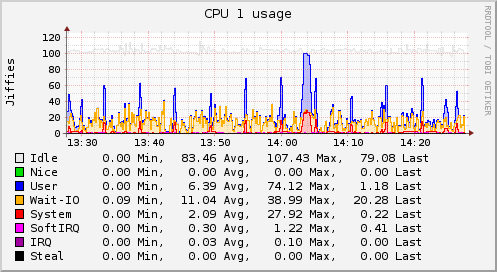- Zeek网络安全分析框架深入体验
八位数花园
本文还有配套的精品资源,点击获取简介:Zeek(前身为Bro)是一个强大的开源网络分析工具,专门用于监控和分析网络流量以识别安全威胁。它通过事件驱动的方式解析多种网络协议,并具备实时分析、非侵入式部署、强大的日志记录能力,以及丰富的脚本语言支持,是网络安全专业人员不可或缺的工具之一。通过本课程,学生将掌握Zeek的核心功能,包括其日志系统、事件处理机制,以及如何通过编写Zeek脚本来扩展分析能力,
- CentOS DHCP服务器部署指南
title:DHCP服务器部署以及配置search:2024-03-21tags:“#DHCP服务器部署以及配置”CentOSDHCP服务器部署指南背景:因上了Linux的实验课程,在课程中,老师要求我们自己搭建DHCP服务器构建局域网,在构建的时候问题百出,不过也极其有意思一、补充网络基本概念(了解的可以直接跳过)IP地址:通俗来讲,我认为IP就是相当于在互联网的身份证,是用来标识自己在互联网上
- Selenium测试安全策略:防止逆向工程
软件工程实践
软件工程最佳实践AI软件构建大数据系统架构selenium网络tcp/ipai
Selenium测试安全策略:防止逆向工程关键词:Selenium自动化测试、逆向工程、代码安全、敏感信息保护、测试脚本防护摘要:本文从Selenium自动化测试的实际场景出发,深入解析测试脚本面临的逆向工程风险(如敏感信息泄露、测试逻辑被破解),通过生活案例类比技术概念,系统讲解代码混淆、敏感信息加密、日志脱敏等核心安全策略,并提供可落地的实战代码与工具推荐,帮助测试人员构建“防逆向”的安全测试
- 企业级 Java 应用灰度发布设计方案与实践全解析
大手你不懂
JavaJava项目实战微服务-云原生java后端云原生微服务kubernetesistio
引言在当今互联网产品快速迭代的背景下,如何在保证服务稳定性的同时,快速验证新功能的有效性,成为了技术团队面临的重要挑战。灰度发布(CanaryRelease)作为一种重要的发布策略,能够将新版本逐步推向部分用户,在控制风险的同时收集真实用户反馈,已成为企业级Java应用的标配能力。本文将深入探讨灰度发布的核心概念、主流设计方案,并结合行业最佳实践给出具体实现建议。一、灰度发布核心概念1.1灰度发布
- Flask(六) 数据库操作SQLAlchemy
@昵称不存在
Flask数据库flask
文章目录一、准备工作二、最小化可运行示例✅补充延迟绑定方式(推荐方式)三、数据库基本操作(增删改查)1.插入数据(增)2.查询数据(查)3.更新数据(改)4.删除数据(删)四、其他有用方法五、常用字段类型六、初始化数据库脚本(推荐)sqlalchemy实例基本使用常见方法速查多表查询(JOIN)原始SQL语句(可选)示例:分页+排序推荐:使用Flask-SQLAlchemy提供的简写风格完整的Fl
- 短视频运营怎样提高视频剪辑效率?
矩阵营销老黄
新媒体运营流量运营营销剪辑
提高短视频剪辑效率的核心在于将“智能工具”融入全流程管理,并建立标准化操作体系。一、前期策划与素材管理1.AI爆款脚本拆解使用视频宝AI生成模版功能,精准查询全网爆款视频,拆解爆款脚本结构,自动分离视频、音频、字幕,避免盲目剪辑。2.素材管理按标签化管理素材(如“产品特写逆光”“口播惊叹句12种版本”),上传云端储存,组织内部各成员都能在线共享素材。还可以自行储备大量无版权空镜素材,存储时添加“季
- PostgreSQL数据库的自动化备份脚本编写与部署
数据库管理艺术
数据库专家之路大数据AI人工智能MCP&AgentSQL实战数据库postgresql自动化ai
PostgreSQL数据库的自动化备份脚本编写与部署关键词:PostgreSQL、自动化备份、pg_dump、crontab、数据库运维摘要:数据库是企业的“数字心脏”,一旦数据丢失可能导致不可挽回的损失。本文将用“给小学生讲故事”的方式,从备份的重要性出发,逐步讲解如何编写PostgreSQL自动化备份脚本(含全量备份、压缩、日志记录、旧文件清理),并通过crontab实现定时执行。无论你是刚接
- COLT_CMDB_linux_userInfo_20250508.sh修复历史脚本输出指标信息中userName与输出信息不一致问题
#!/bin/bash#IT_BEGIN#IT_TYPE=3#ITSYSTEM_LINUX_AGENTUSERDISCOVER|discovery.user[disc]#原型指标#IT_RULESYSTEM_LINUX_AGENTUSERGROUPID|groupId[{#USERNAME}]#IT_RULESYSTEM_LINUX_AGENTUSERHOME|userHome[{#USERNAM
- mot数据集_MOT数据集转化成VOC格式脚本(mot2voc)
飞啦不休
mot数据集
使用mmdetection检测框架进行相关的训练,由于MOT的数据集标注格式和检测常用的VOC以及COCO格式有很大的差距,因此用于检测任务的时候,需要将mot格式的数据集转化成VOC格式用于检测任务的训练,评估。HUST小菜鸡:将MOT17-Det数据集转成VOC格式zhuanlan.zhihu.com之前我写过一篇将MOT17转化成VOC格式的文章,但是该方法是一个分布的步骤,而且在实际操作过
- springMVC 中的restful 架构风格
weixin_30765319
javajson
RESTful架构:是一种设计的风格,并不是标准,只是提供了一组设计原则和约束条件,也是目前比较流行的一种互联网软件架构。它结构清晰、符合标准、易于理解、扩展方便,所以正得到越来越多网站的采用。关于RESTful架构给你一个链接讲的挺好的阮一峰:这里我结合springMVC讲解一下RESTful在springMVC中的使用,在讲之前先来看看RESTful提倡哪些做法:1.他会对url进行规范:a)
- 从数据抓取到分析:用Python爬虫获取、清洗与可视化数据
程序员威哥
python爬虫c++
在数据科学领域,数据的获取、清洗与分析是整个数据处理过程中的关键步骤。随着互联网上数据的不断增多,使用Python爬虫抓取网站数据并进行分析已成为数据科学家和分析师的常见任务。本篇文章将通过具体的实例,展示如何使用Python从零开始抓取数据,清洗数据,并进行数据分析和可视化。1.数据抓取:用Python爬虫获取网页数据1.1选择爬虫工具Python提供了多个强大的爬虫框架和库,常用的工具包括:r
- AD20学习笔记——BOM表输出
Fz@
EDA学习学习笔记
BOM表输出脚本链接GitHub上-lianlian33/InteractiveHtmlBomForAD网盘链接链接:https://pan.baidu.com/s/1uGpwDyWKNgzghY5EH1Aj8A?pwd=72tx提取码:72tx1、下载文件并解压2、复制文件路径3、将脚本导入AD①点击设置中的ScriptingSystem中的GlobalProjects,选择从文件夹安装。②粘贴
- nacos配置文件快速部署另一种方法
谢平康
nacos
提交nacos配置的另一种一种方法,批命令/shell:以下脚本直接把当前目录下的所有yaml文件一键提交到nacos上前提是要先安装curl以及jq然后把下面的shell保存为import-all.sh然后chmod+ximport-all.sh&&./import-all.sh就好了.记得修改一下的NAMESPACE_NAME与GROUP.#!/bin/bashclearset-e#Nacos
- linux下用ffmpeg测试nvidia 显示驱动是否安装成功的脚本
谢平康
linuxffmpeg运维
#!/bin/bash#生成一个10秒用户来测试的文件ffmpeg-y-flavfi-itestsrc=duration=10:size=1280x720:rate=30\-flavfi-isine=frequency=1000:duration=10\-c:vlibx264-presetfast-crf23\-c:aaac-b:a192k\input.mp4#测试输入文件(可替换为你自己的视频文
- 在安卓设备上使用ADB Shell实现自动向微信好友发送消息的脚本
谢平康
androidadb微信
安卓实现自动给微信好友发送消息的Shell脚本以下是一个简单的Shell脚本示例,用于通过ADB命令在安卓设备上自动打开微信,搜索指定好友,并发送消息。最后,通过截图来确认消息是否成功发送。脚本步骤1.打开微信adbshellamstart-ncom.tencent.mm/.ui.LauncherUI2.(可选)获取屏幕大小#如果需要基于屏幕大小进行坐标定位,可以使用以下命令#adbshellwm
- DeepSeek在性能测试中的应用:AI驱动的性能优化之旅
程序员小雷
性能优化功能测试测试工具单元测试测试用例postmanselenium
上次我们讨论了DeepSeek在自动化测试中的应用,今天我们继续深入探讨如何使用DeepSeek来进行性能测试。性能测试往往涉及大量数据分析和性能瓶颈诊断,这正是AI的强项。让我们看看如何借助DeepSeek的强大能力,让性能测试变得更智能、更高效。1.性能测试场景生成器首先,我们需要一个智能的性能测试场景生成器:classPerformanceScenarioGenerator:def__ini
- 一个简单测试Deepseek吞吐量的脚本,国内环境可跑
谢平康
深度学习pytorch人工智能
一个简单测试Deepseek吞吐量的脚本,这里用DeepSeek-R1-Distill-Qwen-32B,支持单卡409024G可跑,具体看你的硬件情况做调整,理论支持所有的模型,看你需要,可以修改模型名称,重点是pip使用国内的源,模型下载用阿里的ModelScope,无障碍下载,使用.最后可以生成一个txt与html报表.前提是你安装了python与python-venv,你可以不用venv来
- 串行工作室:实时数据可视化工具,让嵌入设备数据一目了然!
在当今快速发展的技术世界中,如何高效处理嵌入式设备数据是许多开发者面临的重大挑战。本文将为大家介绍一个名为SerialStudio的工具,通过它,你可以实现嵌入式设备数据的可视化,无论是在教育、业余项目还是专业开发中,它都是一个不可多得的得力助手。SerialStudio简介SerialStudio是一款开放核心的跨平台遥测仪表板和实时数据可视化工具,它能够通过串口、蓝牙低能耗(BLE)、MQTT
- C51单片机控制OLED显示屏反白显示SPI通信例程
草莓味儿柠檬
本文还有配套的精品资源,点击获取简介:本文档详细介绍0.96英寸OLED显示屏、C51系列单片机、SPI接口及反白显示技术的原理与应用,并提供一套完整的例程源码,指导开发者如何使用C51单片机通过SPI接口控制OLED显示屏实现反白显示效果。文档内容包括硬件连接、初始化SPI、配置OLED显示参数、绘制像素和实现反白显示等关键步骤,旨在帮助初学者学习嵌入式系统开发,并理解相关硬件和软件工作流程。1
- 嵌入式 - i.MX93的GPIO寄存器解读
夜流冰
嵌入式笔记
有四组GPIO,gpio1~gpio4,每组32个端子,序号从0~31。例如,GPIO1_IO00~GPIO1_IO31。表示GPIO状态时,一组寄存器的32个端子用32bit表示,正好四个字节。每组GPIO都有各自的寄存器,基地址空间不同,但其布局和偏移是一致的。1,偏移0x54寄存器PDDR用来设置整组GPIO的输入输出方向,1表示输出,0表示输入。reset后值为0。2,偏移0x50寄存器P
- JSP学习
sakoba
学习java
文章目录什么是JSP运行原理JSP基础语法JSP表达式JSP脚本片段JSP声明jsp指令九大内置对象&四大域对象内置对象四大域对象代码JSP标签、JSTL标签、EL表达式EL表达式JSP标签JSTL标签什么是JSPJSP(JavaServerPages)是由SUN公司在1996年6月发布的一种基于Java技术的服务器端编程技术,用于开发动态Web应用。从本质上讲,它是一个简化的Servlet设计。
- 嵌入式原理与应用篇---常见基础知识(9)
Atticus-Orion
微处理器原理与应用篇上位机操作篇上位机知识篇网络微处理器原理与应用
冯诺伊曼计算机的组成部分及功能冯诺伊曼计算机的设计基于“存储程序”原理,其核心思想是将程序和数据以二进制形式存储在存储器中,由计算机自动执行。以下是各部分的功能及设计思路:一、运算器(ArithmeticLogicUnit,ALU)功能:负责执行算术运算(如加减乘除)和逻辑运算(如与、或、非),是计算机处理数据的核心部件。设计思路:通过逻辑门电路(如全加器、乘法器)实现基本运算,采用并行计算结构提
- 嵌入式硬件与应用篇---寄存器GPIO控制
在ARM架构中,通过32位寄存器控制GPIO(通用输入输出)的核心步骤和方法可分为以下几个关键环节,结合不同芯片的实现差异,具体操作需参考对应的数据手册:一、GPIO控制的核心步骤1.使能GPIO时钟必要性:多数ARM芯片的GPIO外设默认处于时钟关闭状态,需先通过时钟控制寄存器激活。示例:STM32F103(Cortex-M3):使用RCC_APB2PeriphClockCmd函数使能对应GPI
- SeaTunnel2.1.1源码解析
Adobee Chen
大数据知识点seaTunnel大数据
目录一:启动脚本解析二:源码解析入口2.execute()核心方法1.其中BaseSource、BaseTransform、BaseSink都是接口、都实现Plugin接口。他们的实现类就是对应的插件类型2.execute()方法向下走,创建一个执行环境。3.调用plugin.prepare(env)4.最后启动execution.start(sources,transforms,sinks);5
- Go项目限流全攻略:超越中间件的全方位解决方案
码农老gou
golang中间件开发语言
引言:限流在分布式系统中的重要性在当今高并发的互联网应用中,流量控制已成为保障系统稳定性的关键手段。一次突发的流量洪峰可能导致整个系统崩溃,造成不可估量的损失。作为Go开发者,我们常常会面临这样的面试问题:Go项目中如何实现限流?仅仅使用中间件就足够了吗?本文将深入探讨Go项目中的限流策略,分析中间件的局限性,并介绍超越中间件的全方位解决方案。一、常见限流算法解析1.令牌桶算法(TokenBuck
- Python爬虫实战:研究Bleach库相关技术
ylfhpy
爬虫项目实战python爬虫php开发语言Bleach
1.引言在大数据时代,网络内容采集已成为信息获取的重要手段。Python凭借其丰富的爬虫库(如Requests、Scrapy)和灵活的数据处理能力,成为网页爬虫开发的首选语言。然而,从互联网获取的内容往往包含恶意脚本、不安全标签等安全隐患,直接使用可能导致XSS(跨站脚本攻击)、数据泄露等风险。Bleach作为专业的HTML净化库,通过白名单机制提供了可靠的内容安全过滤方案。本文将结合实际案例,详
- Python爬虫实战:研究untangle库相关技术
ylfhpy
爬虫项目实战python爬虫php开发语言untangle
1.引言在大数据时代,网络数据已成为重要的信息资源。XML和HTML作为互联网上最常用的数据表示格式,广泛应用于API接口、网站结构和数据交换等场景。Python凭借其丰富的爬虫库(如Requests、Scrapy)和灵活的数据处理能力,成为网络数据采集的首选语言。然而,从复杂的XML/HTML文档中提取结构化数据仍然面临诸多挑战,如文档结构多样性、动态内容渲染和数据格式转换等问题。Untangl
- 掌握Python与LDAP在域认证中的应用
seiji morisako
本文还有配套的精品资源,点击获取简介:信息技术领域中的域认证机制利用LDAP协议实现用户身份验证。Python脚本语言通过python-ldap库与LDAP服务器交互,执行用户认证。本文将详细介绍Python如何使用python-ldap库进行LDAP连接、搜索、绑定操作,以及如何处理Web开发中的Cookie。学习这些技能有助于构建安全的用户登录系统和提升Web应用的用户体验。1.LDAP协议基
- YOLOv8模型在RDK5开发板上的部署指南:.pt到.bin转换与优化实践
pk_xz123456
python算法仿真模型YOLO人工智能rnn深度学习开发语言lstm
以下是针对在RDK5开发板(基于NVIDIAJetsonOrin平台)部署YOLOv8模型的详细技术指南,涵盖从模型转换、优化到部署的全流程:YOLOv8模型在RDK5开发板上的部署指南:.pt到.bin转换与优化实践——基于TensorRT的高性能嵌入式部署方案第一章:技术背景与核心概念1.1RDK5开发板硬件架构NVIDIAJetsonOrinNX核心参数:1024-coreAmpereGPU
- Redis在企业实战开发中的核心作用:从缓存到分布式系统的关键支柱
LambdaCat
缓存redisjava
在高并发、分布式系统成为主流的今天,Redis已成为企业技术栈中不可或缺的组件。据2024年最新统计,超过82%的互联网企业在生产环境中使用Redis,处理着每秒数十万甚至上百万级的请求在现代软件开发领域,高性能、高并发和可扩展性已成为系统设计的核心要求。面对海量用户和实时数据处理需求,传统数据库在性能方面逐渐显现瓶颈。正是在这样的背景下,Redis(RemoteDictionaryServer)
- ASM系列五 利用TreeApi 解析生成Class
lijingyao8206
ASM字节码动态生成ClassNodeTreeAPI
前面CoreApi的介绍部分基本涵盖了ASMCore包下面的主要API及功能,其中还有一部分关于MetaData的解析和生成就不再赘述。这篇开始介绍ASM另一部分主要的Api。TreeApi。这一部分源码是关联的asm-tree-5.0.4的版本。
在介绍前,先要知道一点, Tree工程的接口基本可以完
- 链表树——复合数据结构应用实例
bardo
数据结构树型结构表结构设计链表菜单排序
我们清楚:数据库设计中,表结构设计的好坏,直接影响程序的复杂度。所以,本文就无限级分类(目录)树与链表的复合在表设计中的应用进行探讨。当然,什么是树,什么是链表,这里不作介绍。有兴趣可以去看相关的教材。
需求简介:
经常遇到这样的需求,我们希望能将保存在数据库中的树结构能够按确定的顺序读出来。比如,多级菜单、组织结构、商品分类。更具体的,我们希望某个二级菜单在这一级别中就是第一个。虽然它是最后
- 为啥要用位运算代替取模呢
chenchao051
位运算哈希汇编
在hash中查找key的时候,经常会发现用&取代%,先看两段代码吧,
JDK6中的HashMap中的indexFor方法:
/**
* Returns index for hash code h.
*/
static int indexFor(int h, int length) {
- 最近的情况
麦田的设计者
生活感悟计划软考想
今天是2015年4月27号
整理一下最近的思绪以及要完成的任务
1、最近在驾校科目二练车,每周四天,练三周。其实做什么都要用心,追求合理的途径解决。为
- PHP去掉字符串中最后一个字符的方法
IT独行者
PHP字符串
今天在PHP项目开发中遇到一个需求,去掉字符串中的最后一个字符 原字符串1,2,3,4,5,6, 去掉最后一个字符",",最终结果为1,2,3,4,5,6 代码如下:
$str = "1,2,3,4,5,6,";
$newstr = substr($str,0,strlen($str)-1);
echo $newstr;
- hadoop在linux上单机安装过程
_wy_
linuxhadoop
1、安装JDK
jdk版本最好是1.6以上,可以使用执行命令java -version查看当前JAVA版本号,如果报命令不存在或版本比较低,则需要安装一个高版本的JDK,并在/etc/profile的文件末尾,根据本机JDK实际的安装位置加上以下几行:
export JAVA_HOME=/usr/java/jdk1.7.0_25
- JAVA进阶----分布式事务的一种简单处理方法
无量
多系统交互分布式事务
每个方法都是原子操作:
提供第三方服务的系统,要同时提供执行方法和对应的回滚方法
A系统调用B,C,D系统完成分布式事务
=========执行开始========
A.aa();
try {
B.bb();
} catch(Exception e) {
A.rollbackAa();
}
try {
C.cc();
} catch(Excep
- 安墨移动广 告:移动DSP厚积薄发 引领未来广 告业发展命脉
矮蛋蛋
hadoop互联网
“谁掌握了强大的DSP技术,谁将引领未来的广 告行业发展命脉。”2014年,移动广 告行业的热点非移动DSP莫属。各个圈子都在纷纷谈论,认为移动DSP是行业突破点,一时间许多移动广 告联盟风起云涌,竞相推出专属移动DSP产品。
到底什么是移动DSP呢?
DSP(Demand-SidePlatform),就是需求方平台,为解决广 告主投放的各种需求,真正实现人群定位的精准广
- myelipse设置
alafqq
IP
在一个项目的完整的生命周期中,其维护费用,往往是其开发费用的数倍。因此项目的可维护性、可复用性是衡量一个项目好坏的关键。而注释则是可维护性中必不可少的一环。
注释模板导入步骤
安装方法:
打开eclipse/myeclipse
选择 window-->Preferences-->JAVA-->Code-->Code
- java数组
百合不是茶
java数组
java数组的 声明 创建 初始化; java支持C语言
数组中的每个数都有唯一的一个下标
一维数组的定义 声明: int[] a = new int[3];声明数组中有三个数int[3]
int[] a 中有三个数,下标从0开始,可以同过for来遍历数组中的数
- javascript读取表单数据
bijian1013
JavaScript
利用javascript读取表单数据,可以利用以下三种方法获取:
1、通过表单ID属性:var a = document.getElementByIdx_x_x("id");
2、通过表单名称属性:var b = document.getElementsByName("name");
3、直接通过表单名字获取:var c = form.content.
- 探索JUnit4扩展:使用Theory
bijian1013
javaJUnitTheory
理论机制(Theory)
一.为什么要引用理论机制(Theory)
当今软件开发中,测试驱动开发(TDD — Test-driven development)越发流行。为什么 TDD 会如此流行呢?因为它确实拥有很多优点,它允许开发人员通过简单的例子来指定和表明他们代码的行为意图。
TDD 的优点:
&nb
- [Spring Data Mongo一]Spring Mongo Template操作MongoDB
bit1129
template
什么是Spring Data Mongo
Spring Data MongoDB项目对访问MongoDB的Java客户端API进行了封装,这种封装类似于Spring封装Hibernate和JDBC而提供的HibernateTemplate和JDBCTemplate,主要能力包括
1. 封装客户端跟MongoDB的链接管理
2. 文档-对象映射,通过注解:@Document(collectio
- 【Kafka八】Zookeeper上关于Kafka的配置信息
bit1129
zookeeper
问题:
1. Kafka的哪些信息记录在Zookeeper中 2. Consumer Group消费的每个Partition的Offset信息存放在什么位置
3. Topic的每个Partition存放在哪个Broker上的信息存放在哪里
4. Producer跟Zookeeper究竟有没有关系?没有关系!!!
//consumers、config、brokers、cont
- java OOM内存异常的四种类型及异常与解决方案
ronin47
java OOM 内存异常
OOM异常的四种类型:
一: StackOverflowError :通常因为递归函数引起(死递归,递归太深)。-Xss 128k 一般够用。
二: out Of memory: PermGen Space:通常是动态类大多,比如web 服务器自动更新部署时引起。-Xmx
- java-实现链表反转-递归和非递归实现
bylijinnan
java
20120422更新:
对链表中部分节点进行反转操作,这些节点相隔k个:
0->1->2->3->4->5->6->7->8->9
k=2
8->1->6->3->4->5->2->7->0->9
注意1 3 5 7 9 位置是不变的。
解法:
将链表拆成两部分:
a.0-&
- Netty源码学习-DelimiterBasedFrameDecoder
bylijinnan
javanetty
看DelimiterBasedFrameDecoder的API,有举例:
接收到的ChannelBuffer如下:
+--------------+
| ABC\nDEF\r\n |
+--------------+
经过DelimiterBasedFrameDecoder(Delimiters.lineDelimiter())之后,得到:
+-----+----
- linux的一些命令 -查看cc攻击-网口ip统计等
hotsunshine
linux
Linux判断CC攻击命令详解
2011年12月23日 ⁄ 安全 ⁄ 暂无评论
查看所有80端口的连接数
netstat -nat|grep -i '80'|wc -l
对连接的IP按连接数量进行排序
netstat -ntu | awk '{print $5}' | cut -d: -f1 | sort | uniq -c | sort -n
查看TCP连接状态
n
- Spring获取SessionFactory
ctrain
sessionFactory
String sql = "select sysdate from dual";
WebApplicationContext wac = ContextLoader.getCurrentWebApplicationContext();
String[] names = wac.getBeanDefinitionNames();
for(int i=0; i&
- Hive几种导出数据方式
daizj
hive数据导出
Hive几种导出数据方式
1.拷贝文件
如果数据文件恰好是用户需要的格式,那么只需要拷贝文件或文件夹就可以。
hadoop fs –cp source_path target_path
2.导出到本地文件系统
--不能使用insert into local directory来导出数据,会报错
--只能使用
- 编程之美
dcj3sjt126com
编程PHP重构
我个人的 PHP 编程经验中,递归调用常常与静态变量使用。静态变量的含义可以参考 PHP 手册。希望下面的代码,会更有利于对递归以及静态变量的理解
header("Content-type: text/plain");
function static_function () {
static $i = 0;
if ($i++ < 1
- Android保存用户名和密码
dcj3sjt126com
android
转自:http://www.2cto.com/kf/201401/272336.html
我们不管在开发一个项目或者使用别人的项目,都有用户登录功能,为了让用户的体验效果更好,我们通常会做一个功能,叫做保存用户,这样做的目地就是为了让用户下一次再使用该程序不会重新输入用户名和密码,这里我使用3种方式来存储用户名和密码
1、通过普通 的txt文本存储
2、通过properties属性文件进行存
- Oracle 复习笔记之同义词
eksliang
Oracle 同义词Oracle synonym
转载请出自出处:http://eksliang.iteye.com/blog/2098861
1.什么是同义词
同义词是现有模式对象的一个别名。
概念性的东西,什么是模式呢?创建一个用户,就相应的创建了 一个模式。模式是指数据库对象,是对用户所创建的数据对象的总称。模式对象包括表、视图、索引、同义词、序列、过
- Ajax案例
gongmeitao
Ajaxjsp
数据库采用Sql Server2005
项目名称为:Ajax_Demo
1.com.demo.conn包
package com.demo.conn;
import java.sql.Connection;import java.sql.DriverManager;import java.sql.SQLException;
//获取数据库连接的类public class DBConnec
- ASP.NET中Request.RawUrl、Request.Url的区别
hvt
.netWebC#asp.nethovertree
如果访问的地址是:http://h.keleyi.com/guestbook/addmessage.aspx?key=hovertree%3C&n=myslider#zonemenu那么Request.Url.ToString() 的值是:http://h.keleyi.com/guestbook/addmessage.aspx?key=hovertree<&
- SVG 教程 (七)SVG 实例,SVG 参考手册
天梯梦
svg
SVG 实例 在线实例
下面的例子是把SVG代码直接嵌入到HTML代码中。
谷歌Chrome,火狐,Internet Explorer9,和Safari都支持。
注意:下面的例子将不会在Opera运行,即使Opera支持SVG - 它也不支持SVG在HTML代码中直接使用。 SVG 实例
SVG基本形状
一个圆
矩形
不透明矩形
一个矩形不透明2
一个带圆角矩
- 事务管理
luyulong
javaspring编程事务
事物管理
spring事物的好处
为不同的事物API提供了一致的编程模型
支持声明式事务管理
提供比大多数事务API更简单更易于使用的编程式事务管理API
整合spring的各种数据访问抽象
TransactionDefinition
定义了事务策略
int getIsolationLevel()得到当前事务的隔离级别
READ_COMMITTED
- 基础数据结构和算法十一:Red-black binary search tree
sunwinner
AlgorithmRed-black
The insertion algorithm for 2-3 trees just described is not difficult to understand; now, we will see that it is also not difficult to implement. We will consider a simple representation known
- centos同步时间
stunizhengjia
linux集群同步时间
做了集群,时间的同步就显得非常必要了。 以下是查到的如何做时间同步。 在CentOS 5不再区分客户端和服务器,只要配置了NTP,它就会提供NTP服务。 1)确认已经ntp程序包: # yum install ntp 2)配置时间源(默认就行,不需要修改) # vi /etc/ntp.conf server pool.ntp.o
- ITeye 9月技术图书有奖试读获奖名单公布
ITeye管理员
ITeye
ITeye携手博文视点举办的9月技术图书有奖试读活动已圆满结束,非常感谢广大用户对本次活动的关注与参与。 9月试读活动回顾:http://webmaster.iteye.com/blog/2118112本次技术图书试读活动的优秀奖获奖名单及相应作品如下(优秀文章有很多,但名额有限,没获奖并不代表不优秀):
《NFC:Arduino、Andro
